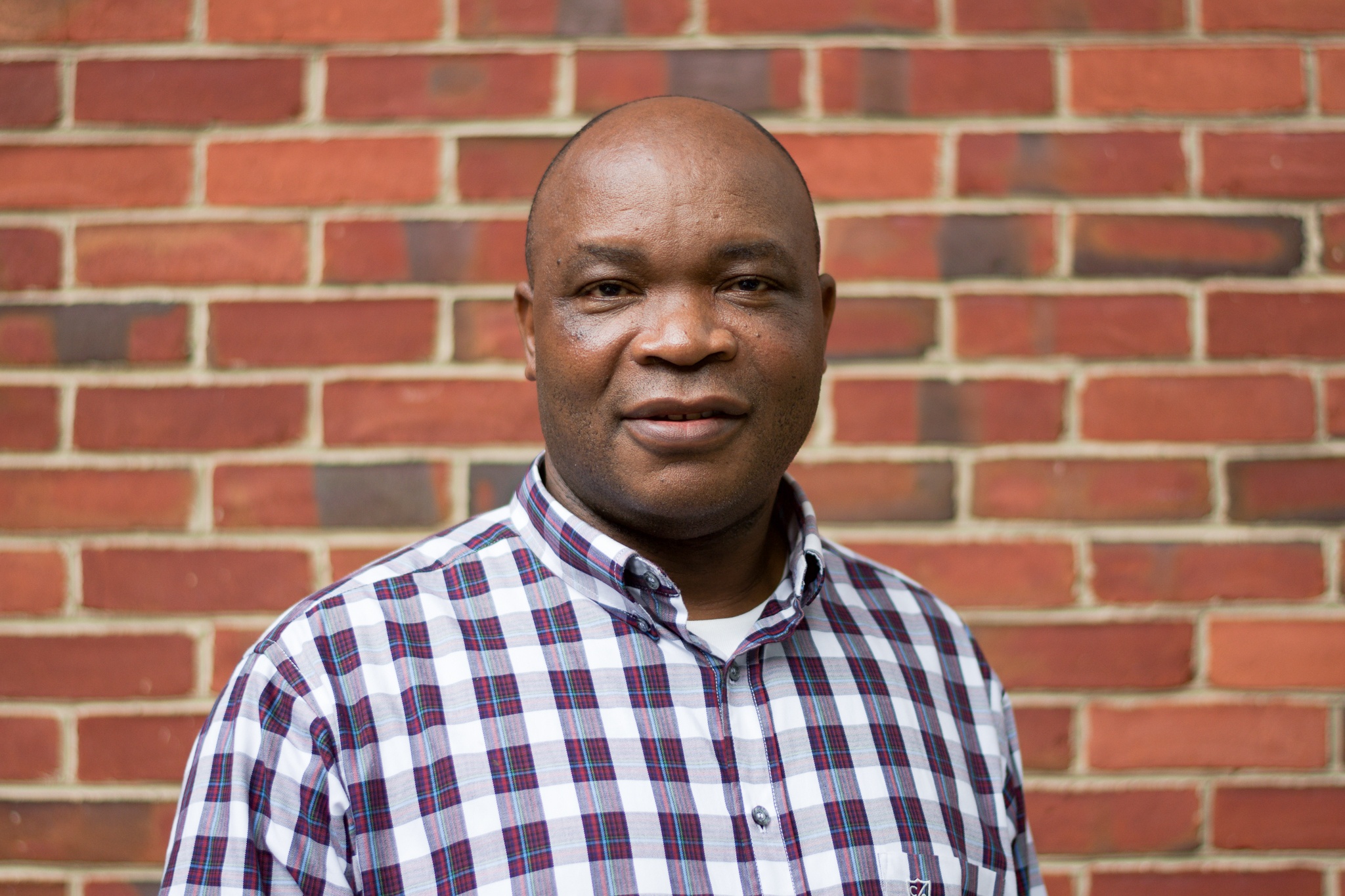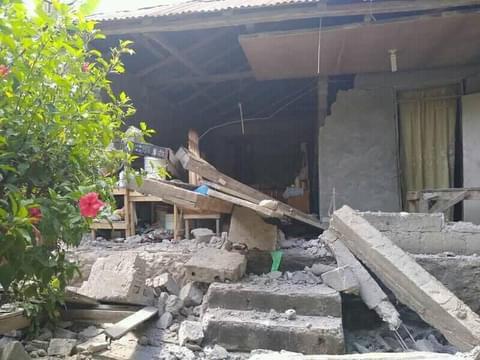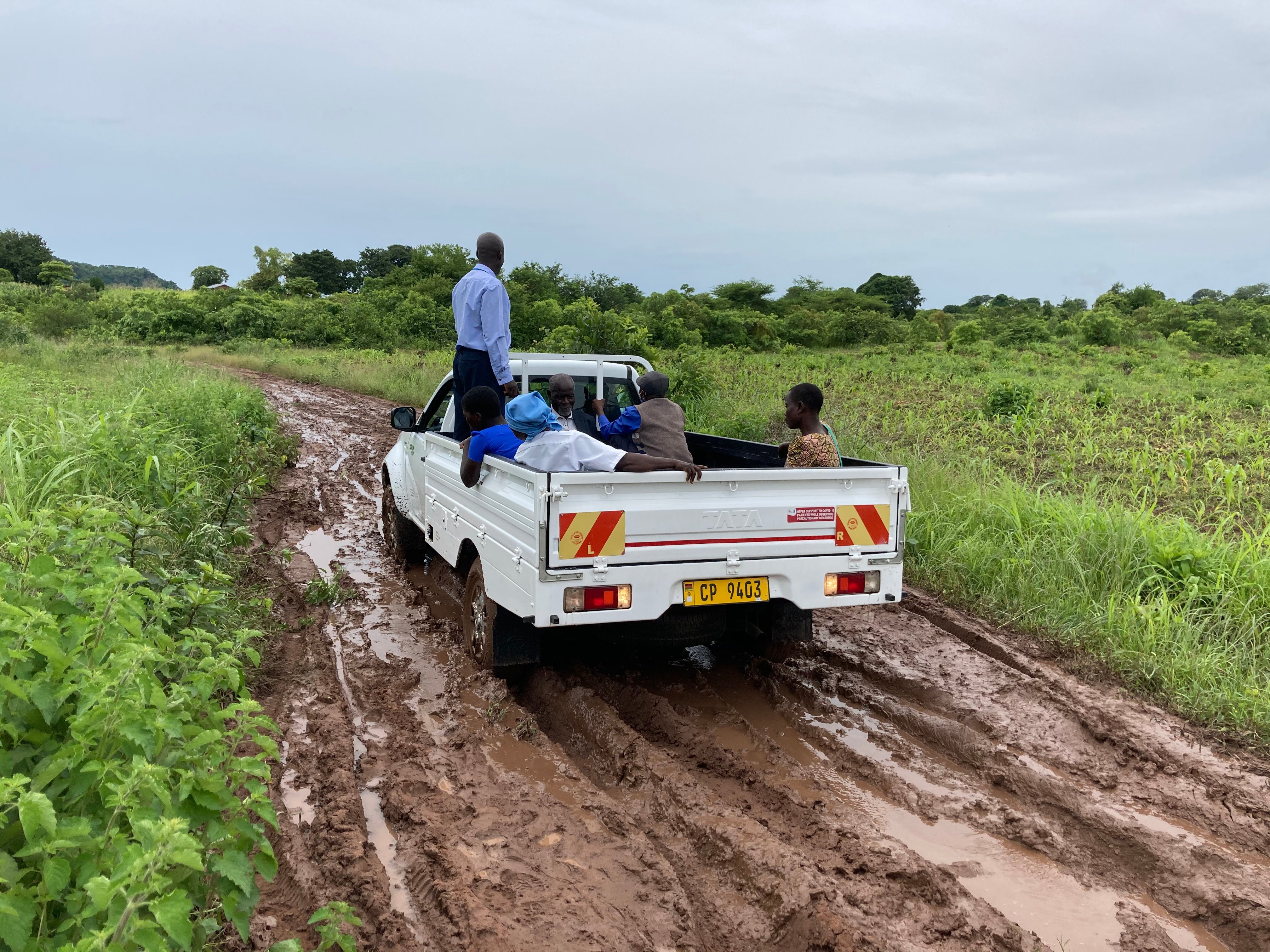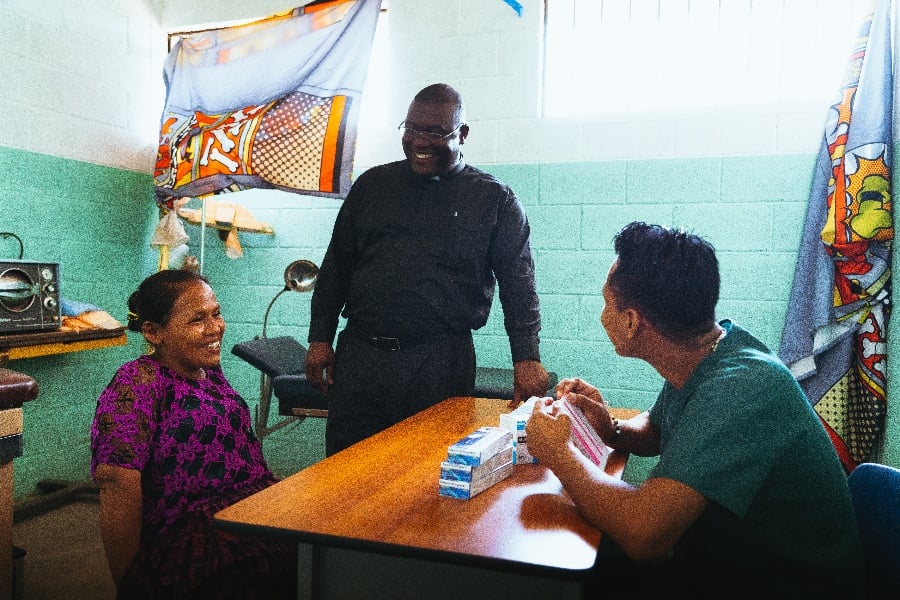
State-sponsored violence, material poverty, learned helplessness, and lack of access to decent education and healthcare for children and families--these are just some of the obstacles that Fr. Francis Nsapo and his fellow missionaries face in the Democratic Republic of Congo.
Fr. Francis, a native of DRC who has been a part of the Missionhurst congregation for 28 years, served for 15 years in the Philippines before being called back home to serve as provincial superior of the province of Southern Africa (DRC, Zambia, and South Africa).
We recently sat down with Fr. Francis to ask him about the current status of the mission in DRC, and how friends and supporters of Missionhurst can help. At the forefront of Fr. Francis’ concerns is the political situation in the country, which is “very bad and might explode anytime.”
In the eastern part of the country, every month there are killings--usually politically motivated--but the government is silent about it. “All over the country, people protest these killings, and the government sends police to kill the protesters.”
Despite the fact that the DRC is rich in natural resources, the instability and corruption of the government means that funds do not go to those who most need them: many children cannot afford to go to school, and few families have health insurance.
“People are dying because they cannot afford to go to the hospital,” Fr. Francis laments.
“People are dying because they cannot afford to go to the hospital,” Fr. Francis laments. Those who do work for hospitals and schools are poorly compensated and are thus not motivated to do their jobs, which in turn leads to shoddy medical care and subpar education.
Missionhurst and other missionary organizations have built schools, hospitals, and orphanages to help people, but the government does not offer any financial support for these efforts, which makes it difficult to maintain proper standards.
Missionhurst also sends many boys to school through their scholarships, and have tried to encourage girls to go to school, even though culturally it’s not supported.
During his time serving in Kanangh, the capital, Fr. Francis encountered four children abandoned by their parents—two girls and two boys, each with a different father.
“Eventually, I came to know that the oldest girl was taking care of all of the younger kids. When she went to the convent school, with the help of the missionaries, I had to help the younger kids to go to school, but I didn’t have enough money to help them also with food.”
Fr. Francis asked the younger children if they would rather him pay for their food or for their education, and of course they chose food. “How could they study on an empty stomach? This is a dilemma for many families in DRC, not just for missionaries. Many parents want to help their kids but simply cannot.”
The lack of educational and job opportunities also causes a crisis among the youth of the Democratic Republic of Congo.
The lack of educational and job opportunities also causes a crisis among the youth of the DRC. “Many young men spend their time destroying property and engaging in violent behavior because they do not have the opportunity to do anything else with their lives—and this is the only way they know how to survive,” explains Fr. Francis.
Along with the lack of opportunity, there is also a learned helplessness among the poor citizens of the DRC, according to Fr. Francis. “Many people relied on the missionary priests of the past, sometimes too much, to the point where they don’t know how to take care of themselves. Sometimes the people do not trust the Missionhurst missionaries because we don’t give them money like the first missionaries did.”
Instead, the Missionhurst priests provide programs and pastoral outreach to help people get out of this learned helplessness and the cycle of poverty, and empower them to hope for and build more satisfying lives.
All of these challenges notwithstanding, Fr. Francis speaks with great affection for his home country and its people, especially the poor. "Two months ago I lost my father, and the poor people who came to visit me wanted to give me something—even just some bananas or peanuts in a plastic bag. Even the students! I know that’s the tradition, but I was wondering why all of these students, living in very difficult situations, didn’t just come empty handed. I did not expect that. I would’ve expected it from people who had something to share, but even the widows, who have nothing, brought something.”
“My father died in the afternoon and I had to say mass that night, and the Church was completely full…and all of those people stayed the whole night with me in the church, in prayer. The next morning, they were surprised that I wasn’t crying, and I told them it is because I feel so supported by them.”
Help support Missionhurst Missionaries likeFr. Francis by becoming a monthly sponsor! Whether you have $5, $50, or $500 to give, anything truly helps.








